Hyundai IONIQ 5 vs Toyota C-HR - Differences and prices compared
Compare performance (650 HP vs 223 HP), boot space and price (38500 £ vs 29100 £ ) at a glance. Find out which car is the better choice for you – Hyundai IONIQ 5 or Toyota C-HR?
Costs and Efficiency:
When it comes to price and running costs, the biggest differences usually appear. This is often where you see which car fits your budget better in the long run.
Toyota C-HR has a evident advantage in terms of price – it starts at 29100 £ , while the Hyundai IONIQ 5 costs 38500 £ . That’s a price difference of around 9351 £.
As for electric range, the Hyundai IONIQ 5 performs clearly better – achieving up to 570 km, about 504 km more than the Toyota C-HR.
Engine and Performance:
Power, torque and acceleration are the classic benchmarks for car enthusiasts – and here, some clear differences start to show.
When it comes to engine power, the Hyundai IONIQ 5 has a significantly edge – offering 650 HP compared to 223 HP. That’s roughly 427 HP more horsepower.
In acceleration from 0 to 100 km/h, the Hyundai IONIQ 5 is decisively quicker – completing the sprint in 3.50 s, while the Toyota C-HR takes 7.40 s. That’s about 3.90 s faster.
Space and Everyday Use:
Beyond pure performance, interior space and usability matter most in daily life. This is where you see which car is more practical and versatile.
Both vehicles offer seating for 5 people.
In curb weight, Toyota C-HR is distinct lighter – 1505 kg compared to 1955 kg. The difference is around 450 kg.
In terms of boot space, the Hyundai IONIQ 5 offers slightly more room – 520 L compared to 447 L. That’s a difference of about 73 L.
When it comes to payload, Hyundai IONIQ 5 to a small extent takes the win – 530 kg compared to 425 kg. That’s a difference of about 105 kg.
Who wins the race in the data check?
The Hyundai IONIQ 5 is decisively ahead in the objective data comparison.
This result only shows which model scores more points on paper – not which of the two cars feels right for you.
Costs and Consumption
View detailed analysis
Engine and Performance
View detailed analysis
Dimensions and Body
View detailed analysis
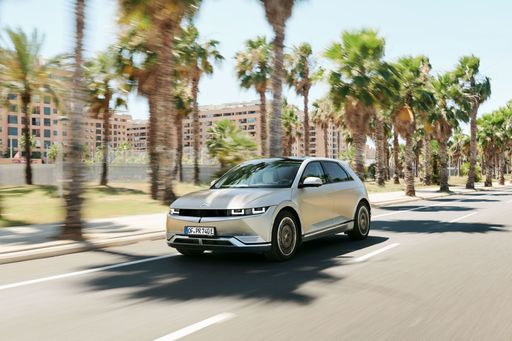
Hyundai IONIQ 5
Hyundai IONIQ 5
The Hyundai IONIQ 5 looks like a spaceship that moved into suburbia, pairing bold retro‑futuristic styling with a roomy, cleverly laid-out cabin that makes long trips surprisingly comfortable. Its electric character delivers instant, silky acceleration and low running costs, making it a smart, slightly cheeky pick for buyers who want tech, practicality and personality without the drama.
details
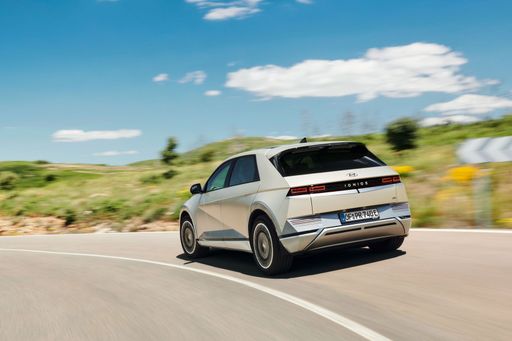
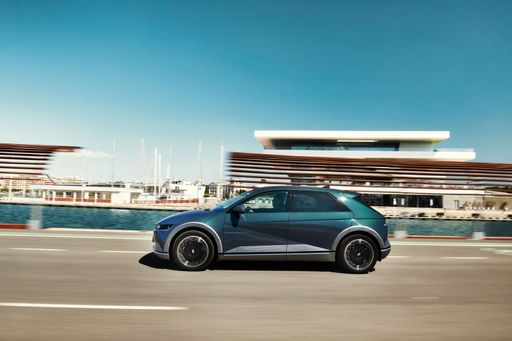
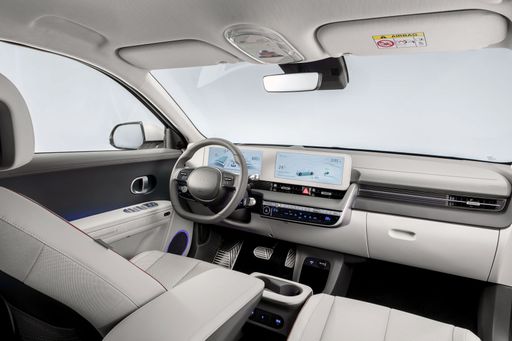
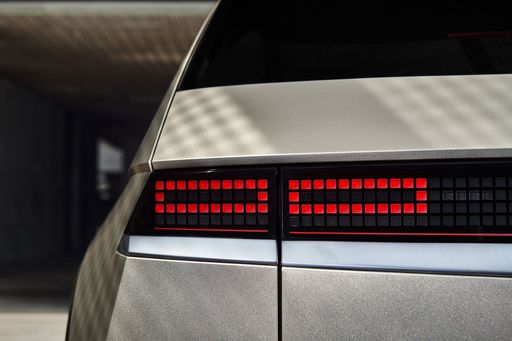
Toyota C-HR
The Toyota C-HR cuts a striking figure with its angular styling and coupe-like profile, so you’ll never go unnoticed in the supermarket car park. It balances everyday practicality with a nimble, city-friendly personality, making routine commutes feel a touch more fun without asking for forgiveness.
details




Costs and Consumption |
|
|---|---|
|
Price
38500 - 64200 £
|
Price
29100 - 42800 £
|
|
Consumption L/100km
-
|
Consumption L/100km
2.3 - 5.1 L
|
|
Consumption kWh/100km
15.6 - 21.2 kWh
|
Consumption kWh/100km
-
|
|
Electric Range
440 - 570 km
|
Electric Range
66 km
|
|
Battery Capacity
63 - 84 kWh
|
Battery Capacity
-
|
|
co2
0 g/km
|
co2
52 - 116 g/km
|
|
Fuel tank capacity
-
|
Fuel tank capacity
-
|
Dimensions and Body |
|
|---|---|
|
Body Type
SUV
|
Body Type
SUV
|
|
Seats
5
|
Seats
5
|
|
Doors
5
|
Doors
-
|
|
Curb weight
1955 - 2275 kg
|
Curb weight
1505 - 1755 kg
|
|
Trunk capacity
480 - 520 L
|
Trunk capacity
350 - 447 L
|
|
Length
4655 - 4715 mm
|
Length
-
|
|
Width
1890 - 1940 mm
|
Width
1832 mm
|
|
Height
1585 - 1605 mm
|
Height
-
|
|
Max trunk capacity
1540 - 1580 L
|
Max trunk capacity
-
|
|
Payload
385 - 530 kg
|
Payload
375 - 425 kg
|
Engine and Performance |
|
|---|---|
|
Engine Type
Electric
|
Engine Type
Full Hybrid, Plugin Hybrid
|
|
Transmission
Automatic
|
Transmission
Automatic
|
|
Transmission Detail
Reduction Gearbox
|
Transmission Detail
CVT
|
|
Drive Type
Rear-Wheel Drive, All-Wheel Drive
|
Drive Type
Front-Wheel Drive, All-Wheel Drive
|
|
Power HP
170 - 650 HP
|
Power HP
140 - 223 HP
|
|
Acceleration 0-100km/h
3.5 - 8.5 s
|
Acceleration 0-100km/h
7.4 - 9.9 s
|
|
Max Speed
185 - 260 km/h
|
Max Speed
-
|
|
Torque
350 - 770 Nm
|
Torque
-
|
|
Number of Cylinders
-
|
Number of Cylinders
4
|
|
Power kW
125 - 478 kW
|
Power kW
103 - 164 kW
|
|
Engine capacity
-
|
Engine capacity
1798 - 1987 cm3
|
General |
|
|---|---|
|
Model Year
2024 - 2025
|
Model Year
2026
|
|
CO2 Efficiency Class
A
|
CO2 Efficiency Class
C, D, B
|
|
Brand
Hyundai
|
Brand
Toyota
|
What drive types are available for the Hyundai IONIQ 5?
The Hyundai IONIQ 5 is available as Rear-Wheel Drive or All-Wheel Drive.
